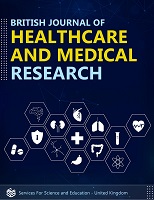Two Anti-sense Non-coding RNAs Regulate their Sense Gene mRNAs: OXCT1–SCOT for Ketolysis and FGF 14 an Anti-Proliferation Factor, in Cancer
DOI:
https://doi.org/10.14738/bjhr.1203.18600Keywords:
OXCT1- SCOT, lncRNA, OXCT1- AS, FGF14, FGF14 -AS, Micro RNAs MirsAbstract
In spite of an increased uptake of glucose by tumour cells, the last steps of glycolysis and entry in oxidative glycolysis are blocked in tumours, impairing the glycolytic supply of mitochondrial Acetyl- CoA. Since mitotic cells have to synthetize fatty acid to form new membranes, the degradation of fatty acids automatically stops, which interrupts the fatty acid Acetyl-CoA supply. Hence, tumour cells become dependent on ketone bodies and SCOT, the specific ketolytic enzyme, transcribed from the sense OXCT1 gene, for synthetizing their mitochondrial Acetyl-CoA. A non-coding Anti-sense RNA is also transcribed from the OXCT1 gene (OXCT1-AS). It activates gene promoters supporting regenerative processes, cell proliferation, anti-apoptotic effects and induces a ketolytic metabolism as for “embryonic cell”. OXCT1-AS was studied in heart recovery after an infarct, the anti-sense transcript is also named SARRAH. In tumour cells, the OXCT1-AS “sponges” micro RNAs, which interrupts their inhibitory effects on cell cycle pro-mitotic proteins, or neutralizes micro RNAs inhibiting proliferation. Thus the OXCT1-AS regulation will aggravate tumour progression, while the OXCT1 sense gene product SCOT provides Acetyl-CoA supporting tumour cell growth. In parallel, we discuss the situation for another gene: FGF14, which codes for an anti-proliferation factor: FGF14. The non–coding anti-sense FGF 14-AS transcript for this gene is able to “sponge”, a micro RNA inhibiting FGF14 expression, which restores FGF14, thereby inhibiting tumour proliferation. FGF14-AS also sponges another micro RNA inhibiting a transcription factor: E2F1. In this case, the effect of FGF14-AS sponging, depends on the concentration reached for E2F1, only high levels blocking the tumour.
Downloads
Published
How to Cite
Issue
Section
License
Copyright (c) 2025 Maurice Israël, Eric Berg, Guy Tenenbaum

This work is licensed under a Creative Commons Attribution 4.0 International License.






